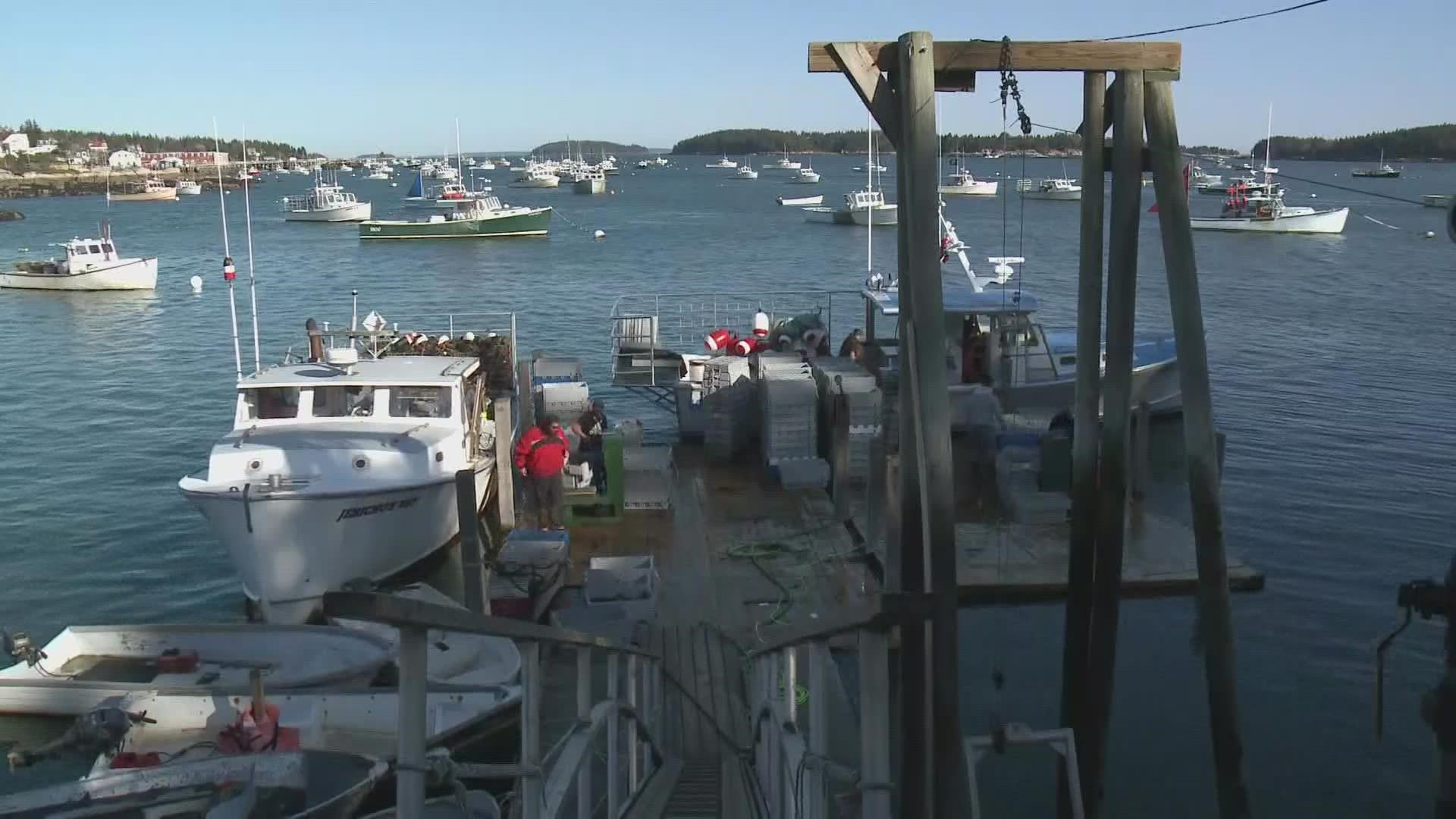AUGUSTA, Maine — Maine lobstermen can resume setting their traps in a roughly 960-square-mile area of ocean that’s been off-limits to them for the past two months.
That closure was part of new rules from the federal National Oceanic and Atmospheric Administration, ordered to protect endangered North Atlantic right whales.
Fishermen in that offshore area were told to remove their traps by late October, but the Maine Lobstering Union challenged the requirement in court and won a restraining order. However, just a few weeks later, a federal appeals court overturned that ruling and reinstated the closure, which finally began at the end of November.
The Maine Lobstermen’s Association estimated last year that nearly 200 fishermen normally work that area during the months it would be closed.
Tuesday marked the end of the closure and fishermen can now return to those waters. However, the MLA said the closure has cost those fishermen money, as they had to spend time relocating traps instead of fishing, which may have reduced catches.
The MLA said it's just the start of significant expenses lobstermen will incur as a result of the new right whale regulations.
“The cost of meeting just the first round of rules is going to run $50-$80 million,” MLA executive director Patrice McCarron said.
“And that’s just round one," she added. "We will do another in 2025 and then a final round in 2030.”
McCarron and the MLA are supporting a bill heard Tuesday by the Maine Legislature’s Marine Resources Committee, which would create a special $30 million emergency fund to compensate fishermen for some of those losses and help cover costs for mandatory changes to fishing gear, scheduled to take effect May 1.
Rep. Holly Stover, D-Boothbay, who said she knows fishermen who have suffered losses, is sponsoring the bill to create the fund, which was created with the help of the Maine Department of Marine Resources and is supported by Gov. Janet Mills.
“These are people’s livelihoods,” Stover said. “But also an economic impact around the state where people live who rely on this industry, whether as fishermen or indirectly as other businesses.”
There appeared to be general support for the concept among most members of the Marine Resources Committee, although details of how the money would be distributed are yet to be determined.
Marine Resources Commissioner Pat Keliher acknowledged that 2021 was, in general, a good year for lobstermen. Prices were up and the catch reportedly was strong. However, he said financial help is still needed, even though most lobstermen should have made money in 2021.
“That does not negate the impact they’re facing,” Keliher said to the committee. “Whether they had a good year doesn’t negate this is the first step of many that will impact the industry.”
He said there may be financial help coming from Washington to compensate for the impact of the new federal rules, but he said no one right now can say when that might happen.
McCarron urged lawmakers to provide some help soon.
“We need this money to keep ourselves whole, so we can live to fish another day,” she said.
The MLA is challenging the scientific underpinnings for the new right whale rules in federal court, and the state is supporting that claim. The state is also involved in a separate case in federal court, brought by an environmental group, which argues the rule is insufficient and does not go far enough to protect right whales from being killed.

